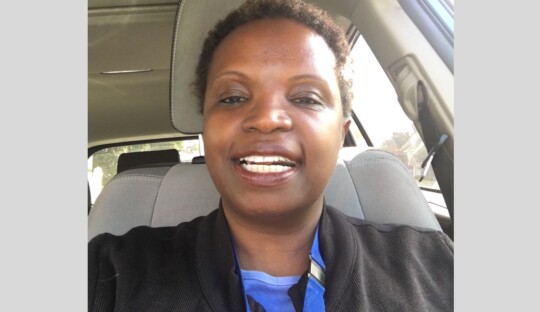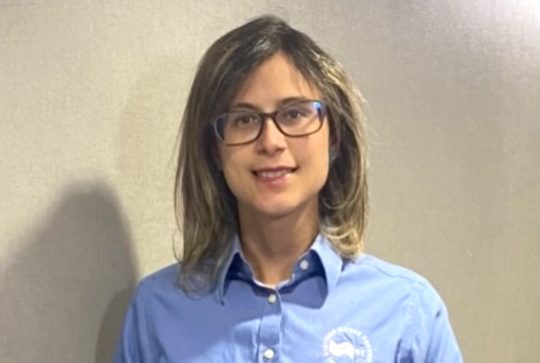PEARLS Program Helps Depressed NYC Seniors Reclaim Their Lives
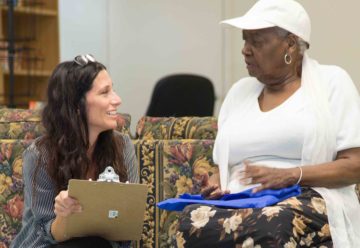
When Natalia* was first contacted by Miriam Brand, a mental health specialist with VNSNY’s PEARLS team, she was suffering from depression and overwhelming anxiety, to the point where she refused to leave her apartment. After assessing her condition, Miriam spent a number of one-on-one sessions helping Natalia identify concrete problems contributing to her condition and brainstorm practical ways to address them. A half-year later, Natalia is meditating and doing yoga to cope with her anxiety, and goes outside by herself on a daily basis. “I’ve learned to take things in stride,” she says.
“Not only has Natalia developed skills for resolving today’s challenges,” adds Miriam, “but PEARLS has prepared her for future challenges as well.” VNSNY’s PEARLS program is part of an innovative, citywide initiative launched last fall by New York City’s Department of Health and Mental Hygiene. The program’s goal is to provide screening and treatment for New Yorkers aged 65 and older suffering from depression. To date, VNSNY’s three outreach teams, two in Queens and another in Manhattan, have screened over 500 seniors, and treated over 100 individuals, including many whose depression had rendered them virtually homebound.
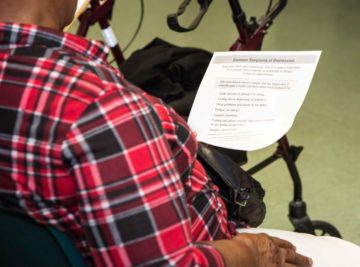
The core of the program involves an evidence-based cognitive-behavioral therapy, administered by mental health specialists from VNSNY’s Community Mental Health Services (CHMS) division. Each senior in the program receives six in-home visits from one of the clinicians, who then follows up with regular monthly phone calls. During the sessions, therapist and patient develop a list of specific changes the patient would like to make in his or her daily life, then work to develop solutions, one item at a time.
For one patient, a man in his early 80s whose isolation had given rise to suicidal thoughts, these included rehearsing and then actually placing phone calls to an old friend, developing a plan to drive himself to church, and putting self-affirming notes around his apartment to counter the panic attacks he’d been experiencing. Today, he’s calling friends regularly and attending church every Sunday. Meanwhile, his score on a commonly used screening questionnaire has gone from “moderate depression” to “no depression.”
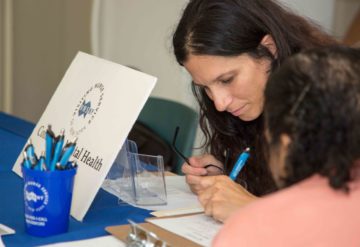
Connecting patients with regular medical care is another element of the program. “When people’s physical issues are addressed, they also feel better psychologically,” explains Annmarie Franco, PEARLS Program Manager for VNSNY. “Research shows that people treated with this approach have lower hospitalization rates and greater health-related improvement in quality of life compared to those who don’t get treatment.”
VNSNY’s CMHS division is one of a number of mental health agencies now implementing PEARLS across New York City. While the division often gets referrals from local senior centers and other community organizations, individuals can be referred for a free in-home depression screening by anyone, including themselves, a nurse, or a friend or family member. “We have the capacity to treat even more people,” notes Annmarie, “so we want to spread the word as much as possible about this highly effective program.”
* The patient’s name has been changed for privacy.
The Take-Away: As part of the recently launched citywide PEARLS program, VNSNY mental health specialists are providing screening and in-home therapy sessions to depressed seniors in Queens and Manhattan.
Do You Know a Depressed Senior Who Could Benefit from PEARLS Therapy?
VNSNY’s PEARLS program operates in Queens Community Districts 1 (including Astoria and Long Island City), 7 (including Flushing and College Point), and 12 (including Jamaica, St. Albans and South Ozone Park), as well as Manhattan Community Districts 7 (covering the Upper West Side) and 8 (covering the Upper East Side and Roosevelt Island).
If you know or are providing care to someone in these districts and would like to refer them to the VNSNY PEARLS program for screening, call: 718-888-6884.

